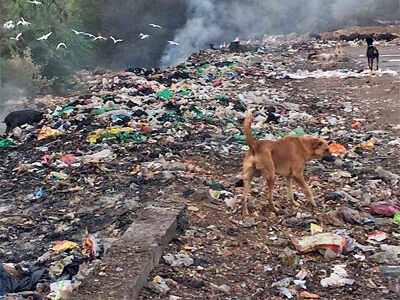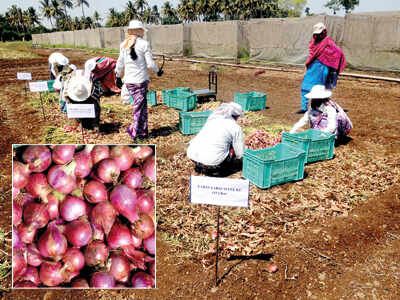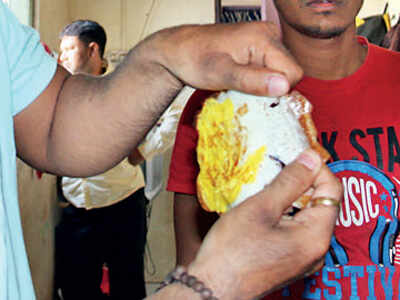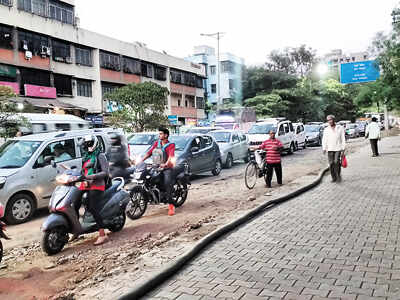PMC HAS NOW SET ITS EYES ON CORN STARCH BAGS
Plastic ban 2.0
Stocks from traders have been seized for testing; ban will be on till biodegradability is confirmed
Soon after the state instituted a ban on the use of plastic bags, corn starch bags became a viable option for traders. They claimed that the bags were reusable and compostable; it was also an idea brandished by a company manufacturing the bags, thereby encouraging people to make the switch in a heartbeat. But this was to be a short-lived freedom, as Pune Municipal Corporation (PMC) is not convinced that the substitute is environment friendly. The civic body has seized sample stocks from traders and given them up for testing, underlining the diktat that until the reports are tabled and turn out favourable, their use is illegal.
The state government called for a blanket ban on plastic on April 1, compelling traders and manufacturers to sell bags only above 50 microns, alongside ensuring that they have it recycled. Those violating the norm were to be fined Rs 25,000 and given a three-year jail term.

PMC officials had seized stocks of corn starch bags from city traders just a few days ago
Speaking about the move, Suresh Jagtap, head of PMC’s solid waste management department, said, “These bags are not entirely biodegradable, as is claimed. We suspect they contain plastic. Hence, we have collected the samples and are planning to send them to be tested at the Indian Plastic Association or National Chemical Laboratory (NCL). We have asked people not to sell or use these bags till we get the results. As per the rules, anything that is not biodegradable and has plastic content is banned. By that thought, there is a ban on these bags too.”
While PMC awaits the test results, a professor from Maharashtra Institute of Technology (MIT) has researched and found that these bags are indeed not degradable. Dr S Radhakrishnan, director, research development and innovation, MIT, said, “I had collected six to seven bags randomly and tested them. We found that only one bag contained starch. These bags were oxo-degradable (which implies photo- catalytic degradation of polymers which needs sunlight and oxygen) and not biodegradable (where the bags have the ability to decompose using bacteria or living organisms). They introduce small amount of adhesive to make it oxo-degradable. Currently, 18 countries have put a ban on oxo-degradable bags. These shouldn’t be used at all.”
The members of Plastic Manufacturers’ Association too seemed to agree to this. Ravi Jashnani, president of the association, said, “Compostable bags are used only for horticulture and agri production. The government insists that this cannot be used for anything else, and it has to take a decision on this as it’s banned by law.” Taking a similar line of thought, Pramod Shah, a member of the association, said, “It cannot be used as a carry-bag. Metal has been found in these bags, and so it is banned as per law.”
Considering the confusion surrounding the bags, hoteliers and traders have stopped using them. Ganesh Shetty, president of Pune Hotel and Restaurant Association, said, “Initially, we started using these bags as a replacement for plastic, but we found they were leaking. Also, when we asked manufacturers for PMC’s certification, they could not furnish the same. So, we have decided not to use these bags.”
Pankaj Patva, a plastic trader, said, “These bags are very costly compared to the plastic bags. If a plastic bag comes at Rs 125 per kg, these bags are sold above Rs 325 per kg. Also, officials from the PMC had collected samples due to their suspicion. So we have stopped stocking these bags in our shops.”
█ I tested 6-7 bags — only 1 contained starch. The bags were oxo-degradable, not biodegradable. They contain a small amount of adhesive; 18 countries ban such bags. They shouldn’t be used
— Dr S Radhakrishnan, director, research development and innovation, MIT
Stocks from traders have been seized for testing; ban will be on till biodegradability is confirmed
Soon after the state instituted a ban on the use of plastic bags, corn starch bags became a viable option for traders. They claimed that the bags were reusable and compostable; it was also an idea brandished by a company manufacturing the bags, thereby encouraging people to make the switch in a heartbeat. But this was to be a short-lived freedom, as Pune Municipal Corporation (PMC) is not convinced that the substitute is environment friendly. The civic body has seized sample stocks from traders and given them up for testing, underlining the diktat that until the reports are tabled and turn out favourable, their use is illegal.
The state government called for a blanket ban on plastic on April 1, compelling traders and manufacturers to sell bags only above 50 microns, alongside ensuring that they have it recycled. Those violating the norm were to be fined Rs 25,000 and given a three-year jail term.
Traders and hoteliers were compelled to switch to the next best option — corn starch bags, which looked like plastic bags, claiming to be biodegradable, reusable and compostable. But now authorities at the civic body suspect that there might be a minor content of plastic even in these bags, prompting them to act. They have also held up the rule book, underscoring that even if they are degradable these bags can be used for specific purposes only.

PMC officials had seized stocks of corn starch bags from city traders just a few days ago
Speaking about the move, Suresh Jagtap, head of PMC’s solid waste management department, said, “These bags are not entirely biodegradable, as is claimed. We suspect they contain plastic. Hence, we have collected the samples and are planning to send them to be tested at the Indian Plastic Association or National Chemical Laboratory (NCL). We have asked people not to sell or use these bags till we get the results. As per the rules, anything that is not biodegradable and has plastic content is banned. By that thought, there is a ban on these bags too.”
While PMC awaits the test results, a professor from Maharashtra Institute of Technology (MIT) has researched and found that these bags are indeed not degradable. Dr S Radhakrishnan, director, research development and innovation, MIT, said, “I had collected six to seven bags randomly and tested them. We found that only one bag contained starch. These bags were oxo-degradable (which implies photo- catalytic degradation of polymers which needs sunlight and oxygen) and not biodegradable (where the bags have the ability to decompose using bacteria or living organisms). They introduce small amount of adhesive to make it oxo-degradable. Currently, 18 countries have put a ban on oxo-degradable bags. These shouldn’t be used at all.”
The members of Plastic Manufacturers’ Association too seemed to agree to this. Ravi Jashnani, president of the association, said, “Compostable bags are used only for horticulture and agri production. The government insists that this cannot be used for anything else, and it has to take a decision on this as it’s banned by law.” Taking a similar line of thought, Pramod Shah, a member of the association, said, “It cannot be used as a carry-bag. Metal has been found in these bags, and so it is banned as per law.”
Considering the confusion surrounding the bags, hoteliers and traders have stopped using them. Ganesh Shetty, president of Pune Hotel and Restaurant Association, said, “Initially, we started using these bags as a replacement for plastic, but we found they were leaking. Also, when we asked manufacturers for PMC’s certification, they could not furnish the same. So, we have decided not to use these bags.”
Pankaj Patva, a plastic trader, said, “These bags are very costly compared to the plastic bags. If a plastic bag comes at Rs 125 per kg, these bags are sold above Rs 325 per kg. Also, officials from the PMC had collected samples due to their suspicion. So we have stopped stocking these bags in our shops.”
█ I tested 6-7 bags — only 1 contained starch. The bags were oxo-degradable, not biodegradable. They contain a small amount of adhesive; 18 countries ban such bags. They shouldn’t be used
— Dr S Radhakrishnan, director, research development and innovation, MIT
You Might Also Like
From around the web
More from Pune Mirror
GALLERIES View more photos





















































Recent Messages ()
Please rate before posting your Review
SIGN IN WITH
Refrain from posting comments that are obscene, defamatory or inflammatory, and do not indulge in personal attacks, name calling or inciting hatred against any community. Help us delete comments that do not follow these guidelines by marking them offensive. Let's work together to keep the conversation civil.